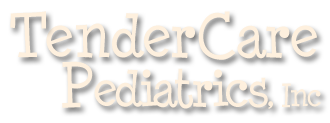Patient Education
Acne
Acne is a common skin condition affecting our teenage and adult patients. Early treatment of acne is important to prevent the development or worsening of acne scars.
Acne treatment options include prescription-strength medications, including topical retinoids, antibiotics or isotretinoin. Your dermatologist will recommend an acne treatment plan based on several factors, including the severity of acne (mild, moderate or severe), its location, presence of acne scars, and your response to previous acne medications.
ADHD (Attention Deficient Hyperactivity Disorder)
ADHD is a condition that makes it hard for children to control their behavior and/or pay attention. It is estimated that between 3 and 5 percent of children have ADHD. It becomes apparent in some children in the preschool and early school years.
Asthma
Asthma is a chronic lung disorder that results in recurrent episodes of wheezing, shortness of breath, and coughing. There are different types of asthma, including exercise-induced asthma and occupational asthma. A variety of asthma medications can help to manage asthma symptoms, including inhaled bronchodilators (albuterol, levalbuterol), inhaled corticosteroids, and combination asthma inhalers.
Your allergist will recommended an asthma treatment based on your type of asthma, severity of asthma symptoms, and asthma history. An asthma diary may be useful for tracking your asthma symptoms and response to treatment. Talk to your allergist about a personalized asthma action plan.
Atopic Dermatitis
Atopic dermatitis, also called “eczema” is a common skin disorder that causes dry, itching and inflamed skin. The rash of atopic dermatitis comes and goes in cycles. A variety of triggers, such as allergies or infections may lead to a “flare”, or worsening of the rash.
During a flare, treatment options include topical corticosteroids, calcineurin inhibitors (Protopic), antihistamines, and antibiotics. Your dermatologist will recommend a treatment based on the location of the dermatitis, severity of symptoms, the presence of possible skin infection, and your response to past treatments. Atopic dermatitis can often be kept under control with appropriate skin care, including the regular use of moisturizers.
Breastfeeding
Breastfeeding is an easy and inexpensive way for a mother to feed and nurture her child. According to the American Academy of Pediatrics (AAP), women who don't have health problems should try to exclusively breastfeed their infants for at least the first six months of life because of the benefits to both the mother and baby.
Child Development
Child development describes how children grow, develop, and learn throughout their lives from birth and infancy to adulthood. There are a variety of developmental milestones that children are expected to achieve when they reach a certain age. Children that do not reach these milestones may have an underlying condition that requires further evaluation.
Headaches
Headaches are very common, but can be very disabling for some. There are different types of headaches, including migraine headaches, tension-type headaches, cluster headaches and hormonal headaches.
Headache treatments are available that can relieve and prevent headaches, including a class of headache medications called triptans. Your neurologist will recommend a headache treatment plan based on several factors, including your type of headache, its frequency and severity. Some people with persisent severe migraine headaches may be candidates for botulinum toxin (Botox, Dysport) injections.
Hives (Urticaria)
Hives describes an allergic reaction on the skin resulting in raised, red areas with intense itching or stinging. Hives are categorized as "acute" if they last less than 6 weeks and “chronic” if they last longer. Acute hives are usually due to an allergic reaction or viral infection. Chronic hives are often due to other causes, including heat, cold, exercise, and stress. Treatment options include antihistamines and oral corticosteroids (prednisone).
Infections
Infections by bacteria and viruses are a common medical problem. The recommended treatment depends on the part of the body that is infected, the type of organism that is causing the infection and the severity of symptoms. Bacterial infections of the ear (otitis media), sinuses (sinusitis), throat (pharyngitis), lungs (pneumonia), and urinary tract (UTIs) can usually be treated effectively with antibiotics. Although viruses cannot be treated with antibiotics, there are anti-viral medications available to treat select viral infections, such as influenza and HIV.
Otitis Media (Ear Infection)
Otitis media affect 3 out of 4 children by the time they are 3 years old. In fact, ear infections are the most common illnesses in babies and young children.
Vaccinations (Family Practice)
Vaccinations (immunizations) are a very safe and effective way to prevent serious illness caused by infectious diseases. Vaccines that are recommended for children before 5 years old provide protection against diphtheria, hepatitis B, influenza (flu), measles, mumps, pertussis (whooping cough), polio, rubella, and varicella (chickenpox). Many of these are given as a series of multiple shots or oral doses. Additional vaccines are also available for those with special medical needs or who will travel internationally.
Powered by Vivacare


